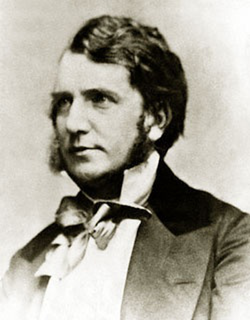A Quote by Alexander MacLaren
As the flowers follow the sun, and silently hold up their petals to be tinted and enlarged by its shining, so must we, if we would know the joy of God, hold our souls, wills, hearts, and minds, still before Him, whose voice commands, whose love warns, whose truth makes fair our whole being. God speaks for the most part in such silence only. If the soul be full of tumult and jangling voices, His voice is little likely to be heard.
Related Quotes
I respect not his labors, his farm where everything has its price, who would carry the landscape, who would carry his God, to market, if he could get anything for him; who goes to market for his god as it is; on whose farm nothing grows free, whose fields bear no crops, whose meadows no flowers, whose trees no fruits, but dollars.
There is emotion in the hug, and there is respect and a form of love. Emotion that comes from honesty, respect that comes from challenge, and the form of love that exists between people whose minds have touched, whose hearts have touched, whose souls have touched. Our minds touched. Our hearts touched. Our souls touched. We separate.
Part of the inner world of everyone is this sense of emptiness, unease, incompleteness, and I believe that this in itself is a word from God, that this is the sound that God’s voice makes in a world that has explained him away. In such a world, I suspect that maybe God speaks to us most clearly through his silence, his absence, so that we know him best through our missing him.
Although our moral conscience is a part of our consciousness, we do not feel ourselves on an equality with it. In this voice which makes itself heard only to give us orders and establish prohibitions, we cannot recognize our own voices; the very tone in which it speaks to us warns us that it expresses something within us that is not of ourselves.
Loving a holy God is beyond our moral power. The only kind of God we can love by our sinful nature is an unholy god, an idol made by our own hands. Unless we are born of the Spirit of God, unless God sheds His holy love in our hearts, unless He stoops in His grace to change our hearts, we will not love Him... To love a holy God requires grace, grace strong enough to pierce our hardened hearts and awaken our moribund souls.
Genuine trust involves allowing another to matter and have an impact in our lives. For that reason, many who hate and do battle with God trust Him more deeply than those whose complacent faith permits an abstract and motionless stance before Him. Those who trust God most are those whose faith permits them to risk wrestling with Him over the deepest questions of life. Good hearts are captured in a divine wrestling match; fearful, doubting hearts stay clear of the mat.
The life-giving preacher is a man of God, whose heart is ever athirst for God, whose soul is ever following hard after God, whose eye is single to God, and in whom by the power of God's Spirit the flesh and the world have been crucified, and his ministry is like the generous flood of a life-giving river.
I call worldly or earthly those whose minds and hearts are fixed on a tiny portion of this world they live in, which is our earth; who respect and love nothing beyond it: people as limited as what they call their property or their estate, which can be measured, whose acres can be counted, whose boundaries can be shown.
Communing with God is communing with our own hearts, our own best selves, not with something foreign and accidental. Saints and devotees have gone into the wilderness to find God; of course they took God with them, and the silence and detachment enabled them to hear the still, small voice of their own souls, as one hears the ticking of his own watch in the stillness of the night.
































